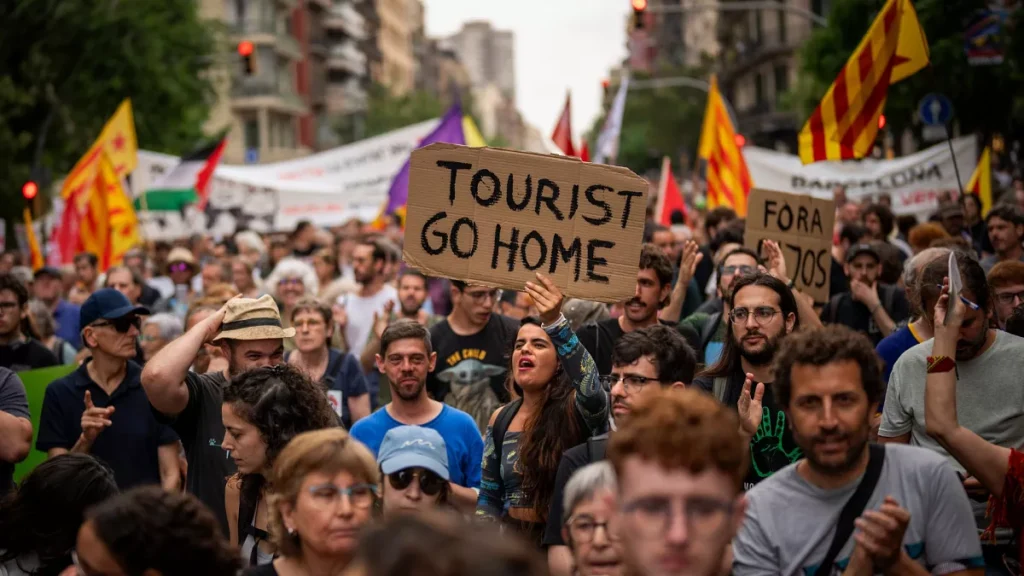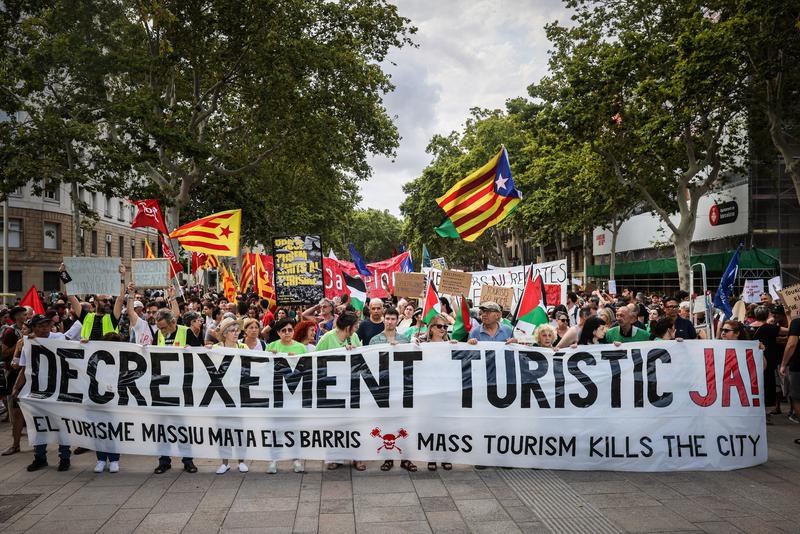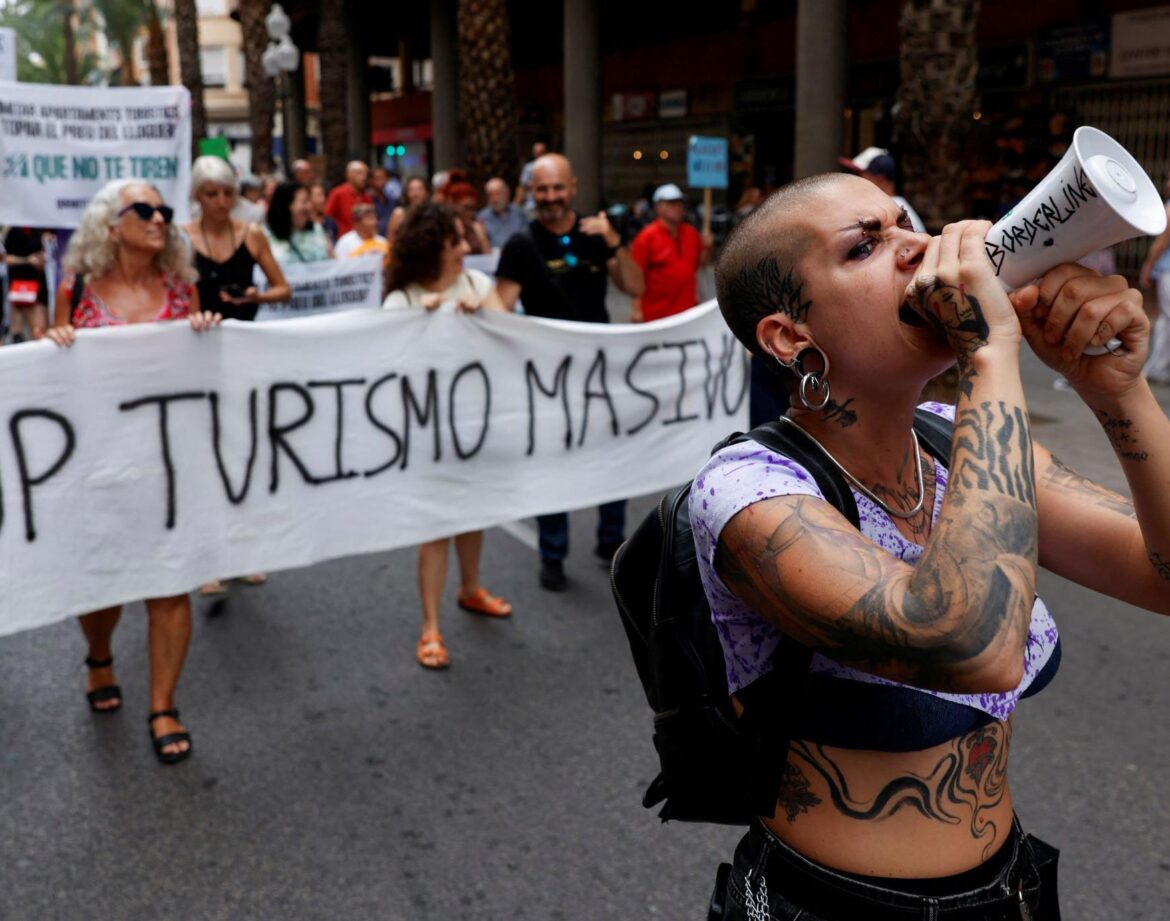The Tourist “Ban” in Spain: What Travelers Need to Know About the Real Crisis

If you’ve heard that Spain is “banning tourists,” you’ve heard the wrong story. The truth is that Spain is taking radical, aggressive steps, but the goal isn’t to stop people from visiting. The true target is the housing crisis and the widespread chaos caused by years of uncontrolled mass tourism.
Here are the most important and often overlooked points about the regulatory shift happening across Spain, from Barcelona to the Balearic Islands.
The Tourist “Ban” in Spain: What Travelers Need to Know About the Real Crisis
If you’ve heard that Spain is “banning tourists,” you’ve heard the wrong story. The truth is that Spain is taking radical, aggressive steps, but the goal isn’t to stop people from visiting. The true target is the housing crisis and the widespread chaos caused by years of uncontrolled mass tourism.
Here are the most important and often overlooked points about the regulatory shift happening across Spain, from Barcelona to the Balearic Islands.
1. The Real Target is Not Tourists, But Apartments
The most common misunderstanding is that cities like Barcelona are blocking visitors. In reality, their fiercest legislation is aimed squarely at short-term rental properties, like those found on platforms such as Airbnb.
Locals Displaced: The consequences are severe. In island regions like Mallorca and Ibiza, some residents have been pushed out of the rental market entirely, with reports of up to 1,000 people living in their vehicles because they cannot afford a home. In major cities, an average of 100 people apply for every single available long-term rental property.
The Housing Emergency: The explosion of short-term rentals has systematically removed thousands of homes from the long-term rental market. This has been the primary driver of resident anger. In Barcelona, rents have surged by over 60% in the last decade.
2. Spain’s Highest Court Approved the Bans
These new rules are not temporary suggestions; they are legally robust. The single most important action that secures these regulations is the decision by Spain’s highest court, the Constitutional Court.
- In March 2025, the Constitutional Court upheld Barcelona’s plan to completely eliminate all 10,000 licensed short-term rental apartments by 2028.
- This ruling established a powerful legal precedent: The public need for affordable housing outweighs the private commercial right to use property as tourist accommodation. This gives every other Spanish city facing a housing crisis the legal power to implement a total ban.
3. Every Region Has Its Own Hard Limits
The new rules are not uniform. Spain is made up of different regions, and each one is fighting its own unique battle against overtourism.
- Barcelona’s Cruise Limits: Europe’s busiest cruise port is imposing firm infrastructure limits. Barcelona is reducing its number of cruise terminals and plans to cap the maximum number of simultaneous cruise passengers at 31,000 by 2030.
- Ibiza’s Permanent Cuts: The Balearic island of Ibiza has gone further than simple freezes; it has permanently eliminated 9,000 unused tourist bed licenses in a deliberate push for “tourism de-growth”.
- Malaga’s Regulatory Pause: In the Andalusian city of Malaga, authorities announced a three-year freeze on issuing new short-term rental licenses in August 2025. This “pause” cools down the housing market by making investors uncertain about the future, achieving the effect of reduced speculation without an immediate permanent ban.

4. The Official Tourism Industry Supports the Limits
Surprisingly, the restrictions are not just supported by angry residents and politicians; they are also backed by major players in the Spanish tourism sector. Spain’s Alliance for Excellence in Tourism (Exceltur) has formally stated that “tourism has a limit” and called for a clear plan to manage visitor numbers without negatively affecting the lives of locals.
5. Social Anger Is Translating into Intolerance
The severe overcrowding and feeling of being displaced has created an environment of open hostility in certain tourist hot spots.
- Angry Slogans: Residents have painted confrontational slogans on walls, including “This used to be my home” and the more hostile “F*ck off home”.
- A Rise in Conflict: There is a worrying correlation between the massive surge in international visitors (125.75 million in 2023) and an increase in recorded hate crimes in Spain. This tension means that unchecked tourism is creating significant social strain and risks turning necessary regulation into outright anti-foreigner sentiment.
For travelers, the key takeaway is simple: Spain is shifting its model from maximizing visitor volume to prioritizing the quality of life for its residents. Being aware of the local housing crisis, respecting local laws (especially around alcohol consumption and group sizes), and confirming that your accommodation is compliant are the best ways to ensure a positive experience and minimize your negative impact.



